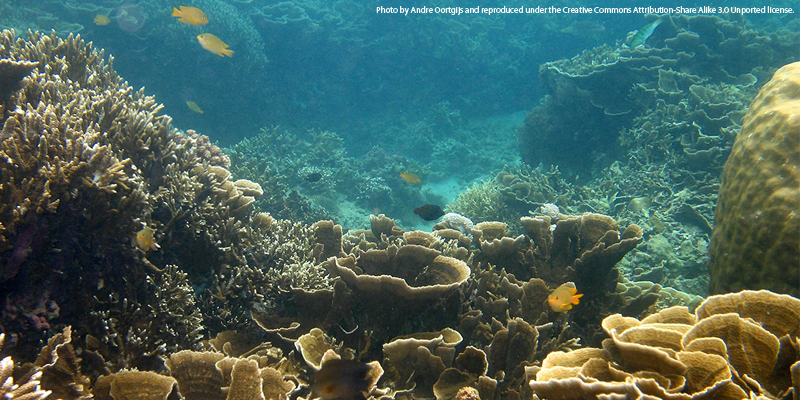An international team of scientists has succeeded in creating a map of the planet\'s corals and their stress factors
Presented in the journal PLoS ONE, the findings from a study conducted by researchers from the Wildlife Conservation Society and other groups will contribute to scientific efforts aiming to conserve some of the coral reefs most crucial to Earth\'s environmental sustainability. The team says this will be achieved primarily by identifying reef systems where biodiversity is high and stress is low, as well as by finding the ecosystems where management has the best chance of success.Experts from the Coral Reef Information System (CoRIS) of the National Oceanic and Atmospheric Administration (NOAA) in the United States say many coral habitats are losing ground, with around 10% of all coral reefs degraded beyond recovery. Estimates from the Coral Reef Task Force in the United States also show that 30% are in critical condition and may die by 2030. Failure to control the stress factors affecting these vibrant underwater structures will result in the death of 60% of the world\'s coral reefs by 2050.In this latest study, researchers identified the following key stress factors that ecosystem management cannot control: ultra-violet radiation, surface temperature and doldrums. They note that the mitigation of human impacts that strengthen radiation stress can be controlled. The location of protected areas that are chosen by managers is another controllable factor.The map outlines ultra-violet radiation, high temperatures, weather systems and sedimentation, and stress-reducing factors like tidal dynamics and temperature variability.\'Coral reefs around the globe are under pressure from a variety of factors such as higher temperatures, sedimentation, and human-related activities such as fishing and coastal development,\' explains lead author Joseph M. Maina, a doctoral student at Macquarie University in Australia and a member of the United States-based Wildlife Conservation Society (WCS). \'The key to effectively identifying where conservation efforts are most likely to succeed is finding reefs where high biodiversity and low stress intersect.\'The scientists used publicly available data sets from satellites and from the branch of mathematics that experts call \'fuzzy logic\' to carry out their study. Fuzzy logic has the capacity to deal with incomplete data on coral physiology and coral-environment interactions.They placed the planet\'s tropical coral reef systems into clusters according to the sum of their stress exposure grades as well as in terms of the factors that increase and decrease these stresses.The team says high radiation stress, including doldrums weather patterns with little wind, and few stress-reducing factors, such as temperature variability and tidal amplitude, characterise the first cluster of coral regions: south-east Asia, Micronesia, the eastern Pacific and the central Indian Ocean. They add that corals in coastal waters of the Middle East and western Australia are also included in the cluster, as both regions have high scores for reinforcing a number of stress factors like phytoplankton and sedimentation.Cluster number 2 includes regions with moderate-to-high rates of exposure as well as high rates of reducing factors including temperature variability and large tides. This cluster comprises the Great Barrier Reef, the central Pacific, Polynesia, the western Indian Ocean and the Caribbean.Commenting on the study, Dr Tim McClanahan, WCS senior conservationist and head of the society\'s coral reef research and conservation programme, says: \'When radiation stress and high fishing are combined, the reefs have little chance of surviving climate change disturbances because they both work against the survival of corals that are the foundation of the coral reef ecosystem.\'The findings can be used by experts to establish management strategies that would comprise activities like fishing restrictions, reforestation of coastal watersheds that contribute to healthy coral systems and the management of watersheds through better agricultural practices.\'The study provides marine park and ecosystem managers with a plan for spatially managing the effectiveness of conservation and sustainability,\' says Dr Caleb McClennen, director of the WCS\'s Marine Program. \'The information will help formulate more effective strategies to protect corals from climate change and lead to improved management of reef systems globally.\'Experts from the Netherlands, the United Kingdom and the United States contributed to this study.
For more information visit:
Subscribe to our newsletter
Stay updated on the latest technology, innovation product arrivals and exciting offers to your inbox.
Newsletter

